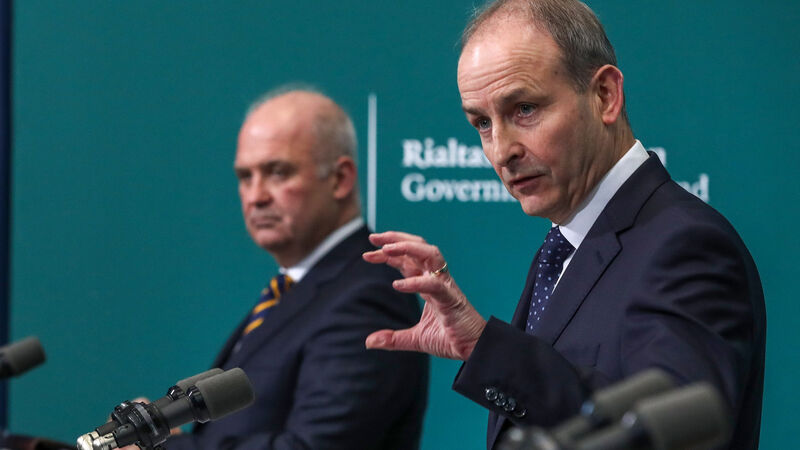Q&A: Why more restrictions, and why now?

Dr Tony Holohan, chief medical officer, and Taoiseach Micheál Martin at Government Buildings.
The Government this evening announced a swathe of new restrictions aimed at heading off the threat of the Omicron variant of Covid-19.
Dr Tony Holohan, the chief medical officer, had told journalists in the hour before the announcement that Omicron now makes up 35% of cases here, and is expected to dominate in less than a week.













